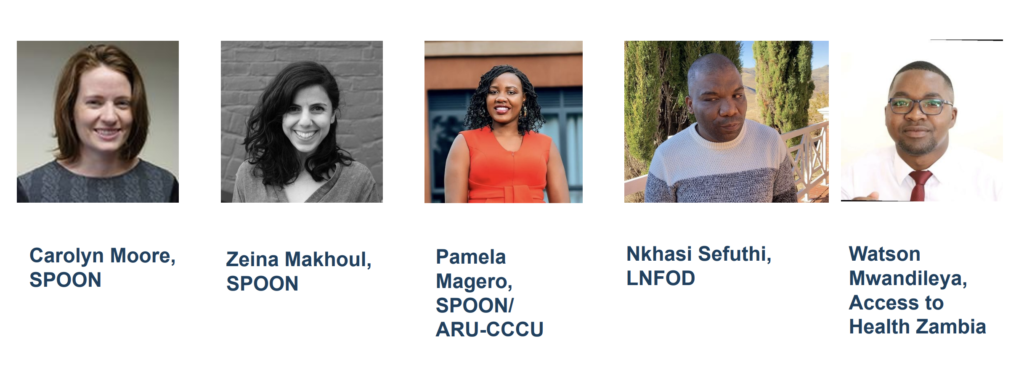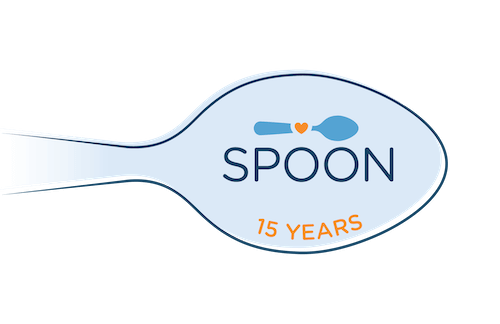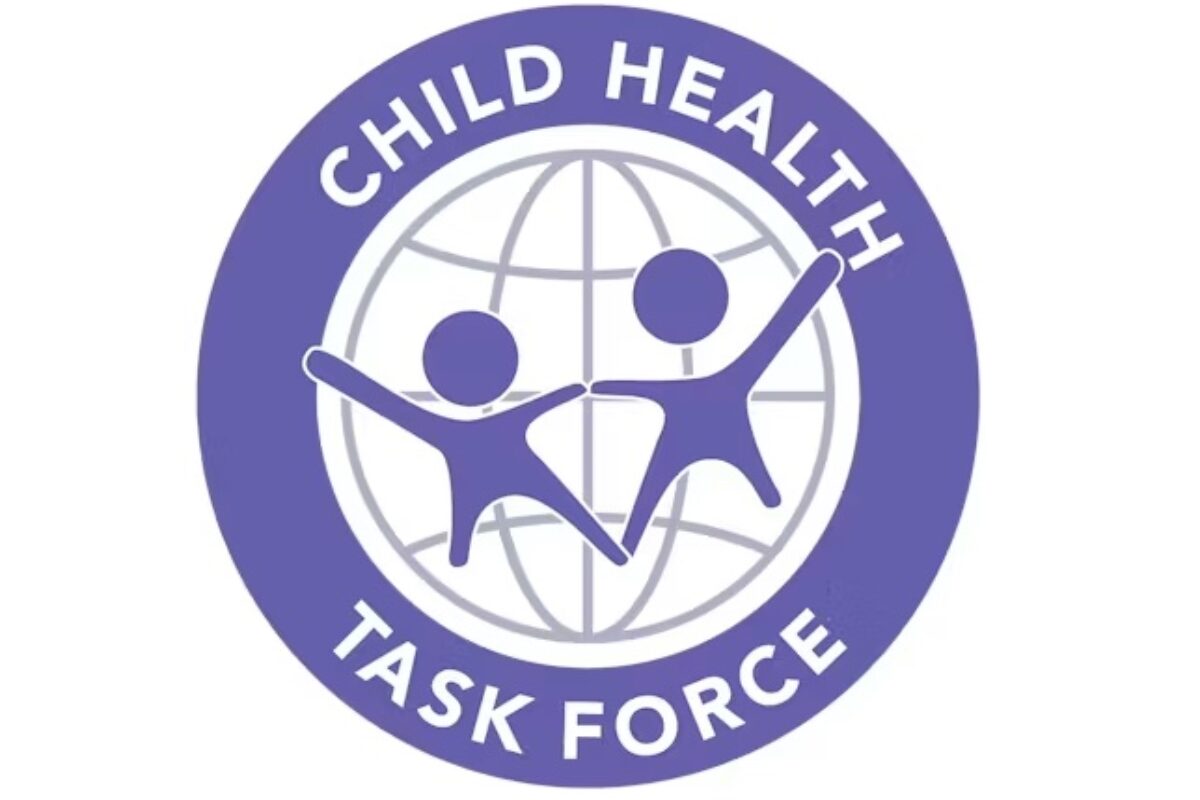At the 2023 Child Health Task Force conference, Accelerating progress towards the 2030 SDGs: reducing inequities in child health, program practitioners, policy makers, and advocates from around the world came together to discuss how to tackle inequities in child health and survival. SPOON convened a session focused on inequities in nutrition and feeding for children with disabilities, and the recording is available here.
Children with disabilities face serious inequities in nutrition – they are three times more likely to be malnourished and twice as likely to die from malnutrition compared to children without disabilities. SPOON’s Nutrition Scientist, Dr. Zeina Makhoul, shared some of the reasons children with disabilities face these inequities, including stigma, lack of appropriate services, and poor access to mainstream nutrition services. She also presented SPOON’s model, including our app, Count Me In.
Three of SPOON’s partners presented case studies on how they are applying SPOON’s model in Uganda, Lesotho, and Zambia.

Uganda
Pamela Magero, Master Trainer with SPOON and the Association of Religious Uganda, Catholic Care for Children Uganda program (ARU-CCCU), presented on how SPOON and ARU-CCCU improve nutrition and feeding practices for children without family care through training, tools, and advocacy. Nutrition support is critical to support families to stay together or during the transition from residential care, and the program is seeing positive trends across multiple indicators of malnutrition as well as changes in caregivers’ practices.
Lesotho
Nkhasi Sefuthi, Executive Director of the Lesotho National Federation of Organizations of the Disabled (LNFOD), presented on the importance of developmental screening and early intervention for children with disabilities or developmental delays. He shared how SPOON, LNFOD, and partners are linking developmental screening with nutrition assessments in clinics and preschools in Lesotho. He emphasized the importance of linking with inclusive services, working across sectors, and addressing stigma to improve outcomes for children with disabilities.
Zambia
Watson Mwandileya, Program Officer for Health and Child Protection with Access to Health Zambia, shared how the Kusamala program is supporting caregivers and children with disabilities. The program includes training, community activities like play therapy and cooking demonstrations, and advocacy. Watson offered recommendations including prioritizing disability inclusion in policies, training government workers, and increasing funding and coordination among organisations supporting children with disabilities
These case studies demonstrate the need for action and the potential for impact in disability and nutrition. Carolyn Moore, SPOON’s Policy and Advocacy Advisor, wrapped up the presentations with a call to action for health and nutrition practitioners to work towards inclusive policies, services, and investments to ensure children with disabilities receive the care and support they need to thrive.


